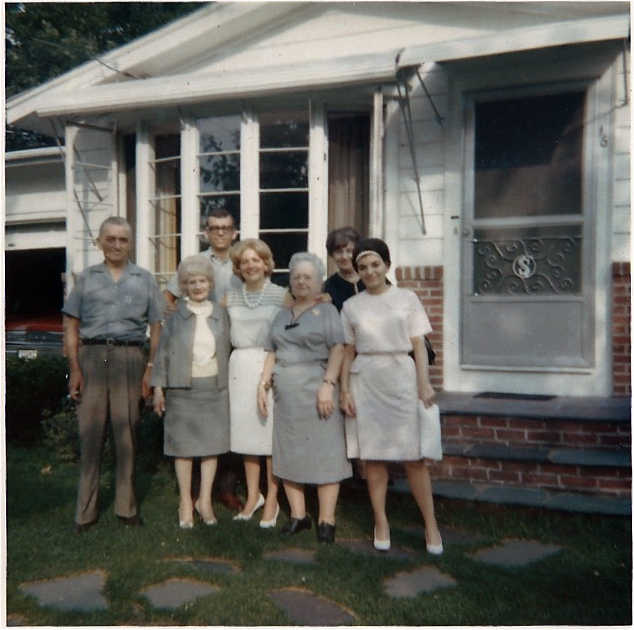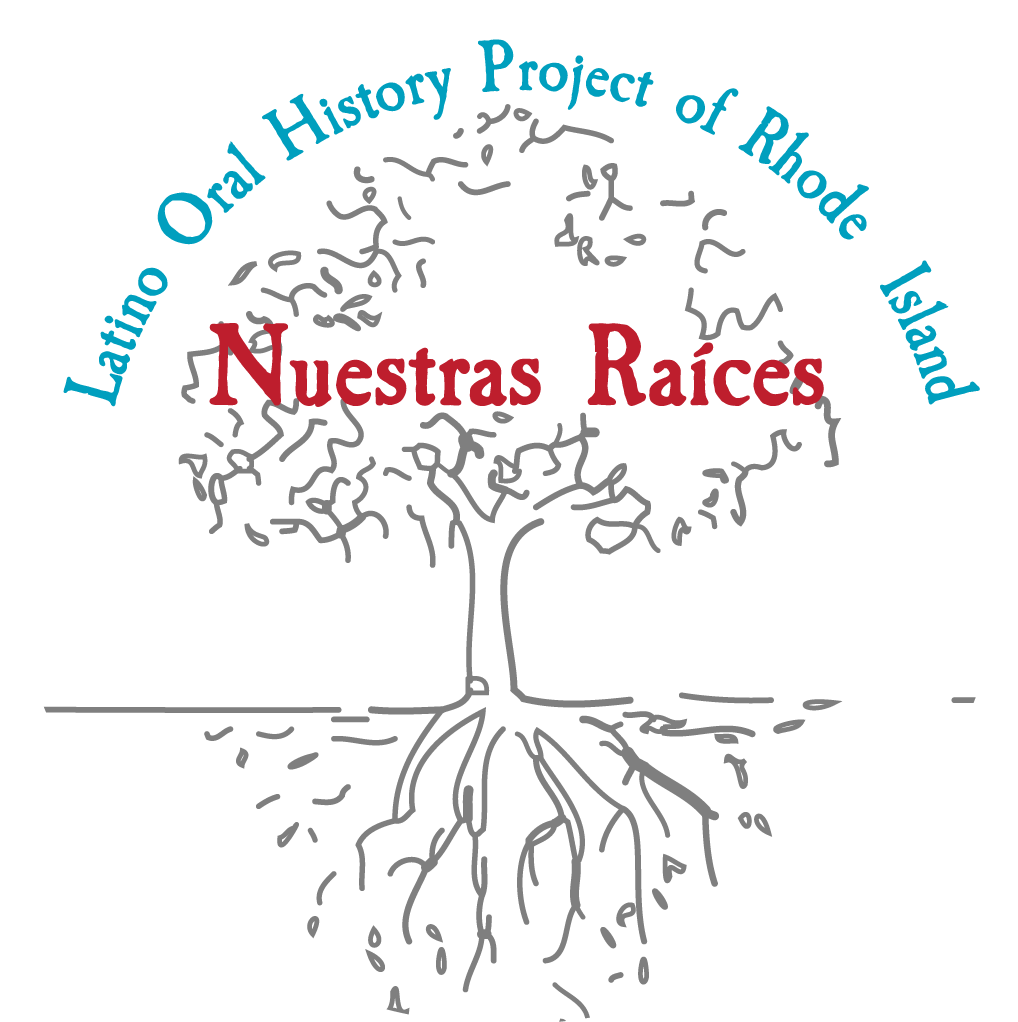
So, Rhode Island was the best place for a family of five. You know, in terms of how we were going to survive. Medical interns don’t get paid well at all. And, my parents had to find a permanent home to live and schools for me and my siblings.
The rest of us finally arrived in Rhode Island in late Spring, and I liked it a lot. Before I arrived, I didn’t want to leave friends that I had in Iowa and for several months after we came to Rhode Island, I was still communicating with friends, writing letters back and forth. But, as time went on, that started dwindling down. I met new people here and soon I lost track of friends in Iowa. My new life was here. We had to think of our new life and my sister, who was ready to graduate in about two or three months, enrolled and graduated from St. Xavier’s High School. I also finished my 9th grade in Pawtucket and then I started sophomore year at Pilgrim High School the following fall, when we moved to Warwick. I stayed at Pilgrim and I graduated in 1966.
The rest of us finally arrived in Rhode Island in late Spring, and I liked it a lot. Before I arrived, I didn’t want to leave friends that I had in Iowa and for several months after we came to Rhode Island, I was still communicating with friends, writing letters back and forth. But, as time went on, that started dwindling down. I met new people here and soon I lost track of friends in Iowa. My new life was here. We had to think of our new life and my sister, who was ready to graduate in about two or three months, enrolled and graduated from St. Xavier’s High School. I also finished my 9th grade in Pawtucket and then I started sophomore year at Pilgrim High School the following fall, when we moved to Warwick. I stayed at Pilgrim and I graduated in 1966.
LEFT: The Salabert family in their home in Warwick with family and friends c.1964
El Club Cubano de Rhode Island
When we first moved to Rhode Island in the mid-1960s we found only a few Cubans. My father soon became president of the Cuban Club of RI, which was associated with the International Institute of Rhode Island (IIRI). The IIRI has always helped all Rhode Island immigrants and refugees, that’s what they do. So, it made sense that the Cubans were involved with the IIRI because really, we were the refugees coming to Rhode Island in those days.
It seems to me that as soon as immigrants arrive to RI they all want to quickly get on with their lives, and, when the next group [of immigrants comes in] they all work together to help them resettle because they know how it feels to be unsettled. I think it’s always been like that.
It seems to me that as soon as immigrants arrive to RI they all want to quickly get on with their lives, and, when the next group [of immigrants comes in] they all work together to help them resettle because they know how it feels to be unsettled. I think it’s always been like that.
And in that way, my father was very involved. He helped many Cubans who came to Rhode Island after we did. I remember going to the Cuban Club of RI, and also to the one in Boston. I was still young enough that I would go with my parents to many of these things.
I felt that the Cuban Club was a place for people to join and just spend time together, as one big family, because we felt we didn’t all have our families here, so we became each other’s family.
Tessie Salabert
Since 1963, we basically just spent a lot of time with other Cubans and we saw only Cubans coming to Rhode Island. I don’t remember other groups of people coming to Rhode Island at that time, not even Dominicans. It wasn’t until 1971 when most Latinos started showing up. And as the years went by, by the middle of the 1960s, the Cubans left Rhode Island; there aren’t many Cubans here anymore. I think many of them, like my parents, left Rhode Island and moved down to Florida, to be in warmer weather.
One of the things I remember most about my childhood and the Cubans here is that we would celebrate events together; family was a big thing. So being in the Cuban Club was always a family affair when we would celebrate events, like holidays that we would have been celebrating in Cuba: Cuban Independence Day or Columbus Day, which was a big deal. It was all these different holidays that would help us keep our Cuban traditions alive. I felt that the Cuban Club was a place for people to join and just spend time together, as one big family, because we felt we didn’t all have our families here, so we became each other’s family.
Things Change, And Things Stay the Same
As I grew up in Rhode Island, I graduated from Pilgrim High School and then from Mt. Saint Joseph College [a college in Rhode Island that no longer exists]. I was a teacher for a while, and then one day, someone told me about a job at the Department of Employment Security where they were looking for interpreters. I applied and got the job. I started working there October 4th, 1971. And I left the department in December of 2006.
I enjoyed that job because I found employment for a lot of people. Today, people still come up to me and say, “Yeah, you got me my first job here.” It’s so satisfying to hear that.
Around 1971 there was a lot of growth in the Latino community, there were so many different organizations helping the Latino immigrants that were coming to Rhode Island.
In 1981 someone from Progreso Latino asked me to join their board of directors, so I did. I was there when they were in their original office on Washington Street in Central Falls, then when we moved to Broad Street, next to Notre Dame Church.
When I first got involved with Progreso Latino, Patricia Martínez was a Vista volunteer, and eventually she became the Executive Director.
I also remember working with SER Jobs for Progress and Proyecto Esperanza (Project Hope) , just two of the many social service organizations that worked to help Latinos and all immigrants in Rhode Island.
I saw so many different organizations spring up through the years. We [the Hispanics working in those days] tried to help out, you know, we’d do whatever we could. And then groups would go away, for some reason or another. I saw different social organizations spring up in the community for many, many years. I mean, we’ve had such a turnover, with different people coming forth, and things changing.
Today’s immigrants still have Progreso Latino and also the International Institute and Dorcas Place. They’re established organizations where immigrants go to get help, and where they can get connected to others who are from their countries, very much like my family when we first moved here.
In many ways, I think things have changed but then things haven’t changed. •
I enjoyed that job because I found employment for a lot of people. Today, people still come up to me and say, “Yeah, you got me my first job here.” It’s so satisfying to hear that.
Around 1971 there was a lot of growth in the Latino community, there were so many different organizations helping the Latino immigrants that were coming to Rhode Island.
In 1981 someone from Progreso Latino asked me to join their board of directors, so I did. I was there when they were in their original office on Washington Street in Central Falls, then when we moved to Broad Street, next to Notre Dame Church.
When I first got involved with Progreso Latino, Patricia Martínez was a Vista volunteer, and eventually she became the Executive Director.
I also remember working with SER Jobs for Progress and Proyecto Esperanza (Project Hope) , just two of the many social service organizations that worked to help Latinos and all immigrants in Rhode Island.
I saw so many different organizations spring up through the years. We [the Hispanics working in those days] tried to help out, you know, we’d do whatever we could. And then groups would go away, for some reason or another. I saw different social organizations spring up in the community for many, many years. I mean, we’ve had such a turnover, with different people coming forth, and things changing.
Today’s immigrants still have Progreso Latino and also the International Institute and Dorcas Place. They’re established organizations where immigrants go to get help, and where they can get connected to others who are from their countries, very much like my family when we first moved here.
In many ways, I think things have changed but then things haven’t changed. •
Interview by Mary Quintas, May 2013
Edited by Marta V. Martínez
Read Miriam (Salabert) Gorriaran's story »
